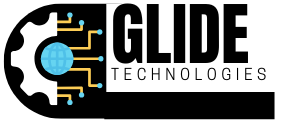Table of Contents
ToggleIn a world where software reigns supreme, finding the best SaaS companies is like searching for the holy grail of productivity. With so many options available, it’s easy to feel overwhelmed—like a kid in a candy store but without the sugar rush. These companies transform how businesses operate, making tedious tasks feel as effortless as scrolling through cat memes.
Overview of SaaS Industry
The SaaS industry has experienced rapid growth, driven by the increasing demand for cloud-based solutions. Many businesses are transitioning from traditional software models to SaaS platforms due to their flexibility. With SaaS products, companies access services via the internet, reducing the need for extensive IT infrastructure.
In 2023, the global SaaS market is projected to reach $200 billion, showcasing its importance in business operations. Subscription-based revenue models provide predictable income for providers while ensuring scalability for users. This model allows businesses of all sizes to benefit from enterprise-level tools without upfront costs.
Key players in the SaaS industry include Salesforce, Zoom, and Dropbox. These companies focus on enhancing productivity and collaboration. Each offers unique features tailored to specific business needs. For example, Salesforce specializes in customer relationship management, while Zoom prioritizes seamless communication.
Investments in SaaS continue to rise as organizations seek integrated solutions. Notably, the rise of remote work has further accelerated this shift, pushing companies to adopt digital tools. Leaders in the SaaS space prioritize ease of use and customer support, ensuring clients extract maximum value.
The future of the SaaS industry appears promising, with innovations in artificial intelligence and machine learning enhancing service offerings. As businesses adopt more specialized solutions, the landscape will likely shift toward niche markets. Users can expect more tailored experiences, reflecting the evolving demands of modern enterprises.
Criteria for Evaluating Best SaaS Companies
Evaluating the best SaaS companies involves multiple key criteria that highlight their effectiveness and appeal.
Customer Satisfaction
Customer satisfaction serves as a fundamental gauge for SaaS companies. High ratings typically indicate that users find the tools valuable and enjoyable. Surveys, reviews, and net promoter scores provide insights into how well a company meets user needs. A strong support system also contributes to satisfaction, making it essential for companies to address issues promptly. In 2023, SaaS companies with high customer satisfaction often see greater retention rates, translating to lasting business relationships.
Innovation and Technology
Innovation and technology play crucial roles in distinguishing top SaaS companies from their competitors. Companies continuously invest in research and development to enhance their offerings. They often incorporate cutting-edge features such as artificial intelligence and machine learning, which adjust solutions based on user behavior. Staying ahead of technological trends allows them to meet evolving market demands. For instance, leading SaaS providers prioritize seamless integration with existing tools, ensuring a cohesive user experience.
Market Presence
Market presence reflects the reach and influence of SaaS companies in their respective sectors. Companies with a robust market presence often enjoy higher credibility and attract more customers. They typically offer a diverse range of solutions catering to various industry needs. Analyzing market share, growth rates, and partnerships offers insights into their standing. In 2023, top SaaS companies consistently demonstrate strong brand recognition, facilitating customer trust and loyalty.
Top Best SaaS Companies in 2023
Several SaaS companies stand out in 2023 due to their innovative solutions and market influence. These companies provide essential tools that enhance business efficiency and collaboration.
Company 1: Overview and Features
Salesforce leads the CRM space with its comprehensive suite of tools. Users benefit from customizable dashboards, advanced analytics, and seamless integrations with various applications. Customer relationship management becomes simpler with automation features that streamline sales processes. Moreover, its mobile accessibility allows sales teams to stay connected on the go. Transforming customer interactions, Salesforce exemplifies the impact of SaaS in enhancing user experience.
Company 2: Overview and Features
Zoom revolutionizes virtual communication with its user-friendly video conferencing platform. It supports high-quality video and audio, ensuring smooth meetings across different devices. Collaborative features like screen sharing and virtual backgrounds enhance user engagement. In addition, Zoom’s webinar capabilities cater to businesses of all sizes looking to hold large events seamlessly. Its adaptability in remote work scenarios makes Zoom a vital SaaS solution for effective communication.
Company 3: Overview and Features
Dropbox excels in file storage and collaboration, streamlining workflow for teams. Users enjoy easy file sharing and the ability to collaborate in real time on documents. Integration with third-party applications further enhances functionality, providing a unified productivity experience. Automatic backup features safeguard important data while maintaining accessibility. This makes Dropbox a favored choice among businesses seeking reliable cloud storage solutions.
Future Trends in SaaS
Emerging technologies shape the trajectory of the SaaS industry. Artificial intelligence and machine learning increasingly play pivotal roles in creating personalized user experiences. Enhanced data analytics capabilities empower businesses to extract actionable insights, driving strategic decisions. Integration with IoT devices is gaining momentum, enabling seamless connections between software and hardware.
Sustainability trends influence software development as companies focus on eco-friendly solutions. Companies that emphasize energy efficiency in their data centers are likely to attract environmentally conscious customers. Additionally, cybersecurity remains a top priority, addressing growing concerns over data breaches and privacy violations. Organizations expect SaaS providers to implement robust security measures to protect sensitive information.
The demand for vertical-specific solutions is on the rise, with tailored applications emerging for healthcare, finance, and education. These industry-focused tools address unique challenges, allowing businesses to operate more efficiently within their sectors. Furthermore, low-code and no-code platforms are democratizing software development, empowering non-technical users to create custom solutions without extensive coding knowledge.
Collaborative features continue to improve, enhancing teamwork across remote and hybrid work environments. Companies invest in expanding functionalities that support real-time collaboration, facilitating productivity among distributed teams. Globalization also drives SaaS companies to enhance multilingual support and cater to diverse markets.
Finally, subscription models are evolving, with flexible pricing structures appealing to a broader array of businesses. Providers are experimenting with usage-based pricing, allowing customers to pay based on consumption rather than a flat rate. This adaptability ensures that startups and large enterprises alike can benefit from sophisticated tools without overwhelming costs.
The landscape of SaaS companies continues to evolve rapidly, reflecting the changing needs of businesses worldwide. As organizations seek to enhance productivity and streamline operations, the right SaaS solutions become indispensable. Key players like Salesforce, Zoom, and Dropbox not only lead the market but also set the standard for innovation and customer satisfaction.
Looking ahead, the integration of advanced technologies like AI and machine learning will further transform the SaaS experience. With a focus on tailored solutions and sustainability, the industry is poised for continued growth. Businesses that embrace these tools will find themselves well-equipped to thrive in an increasingly digital world.



